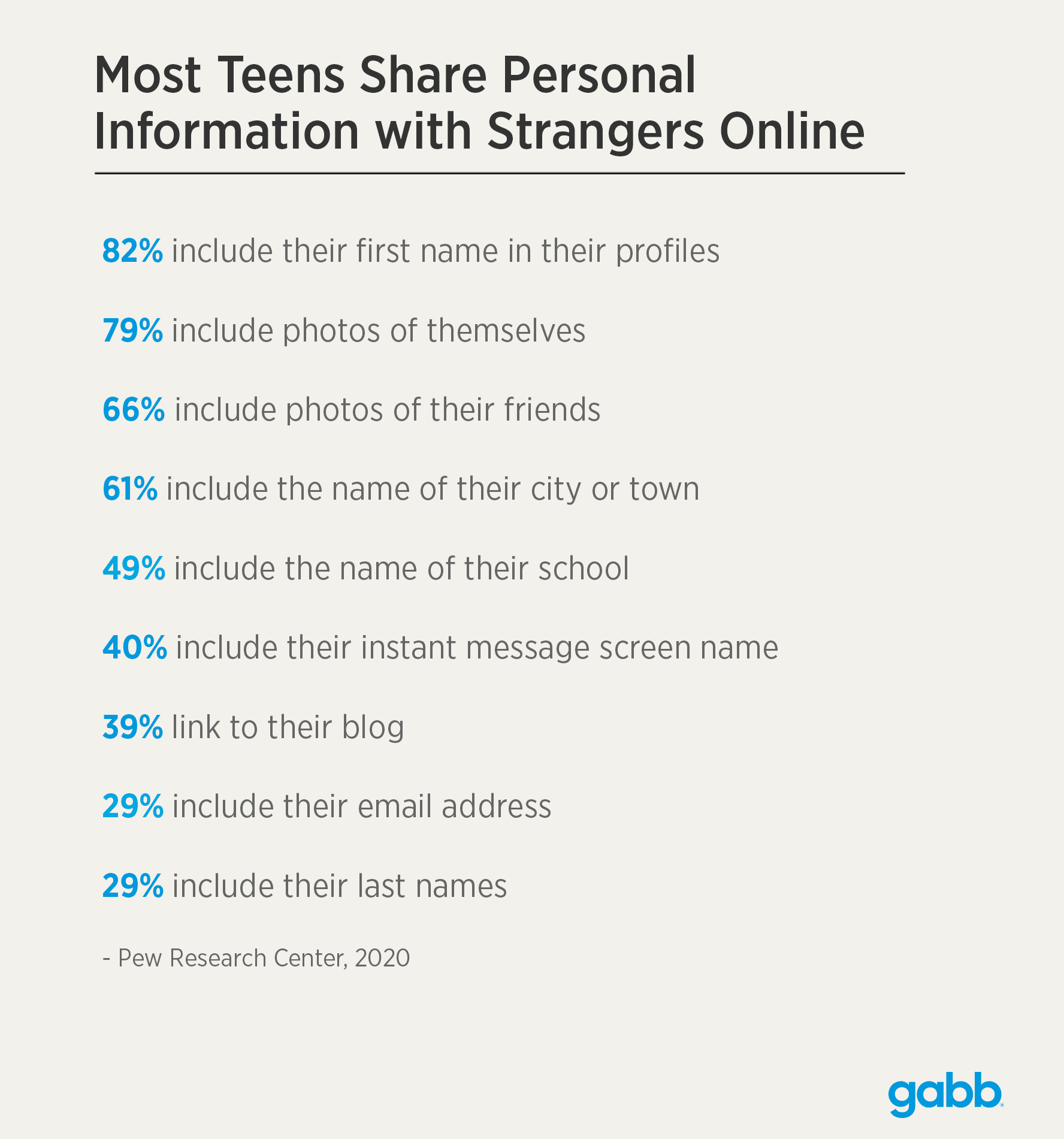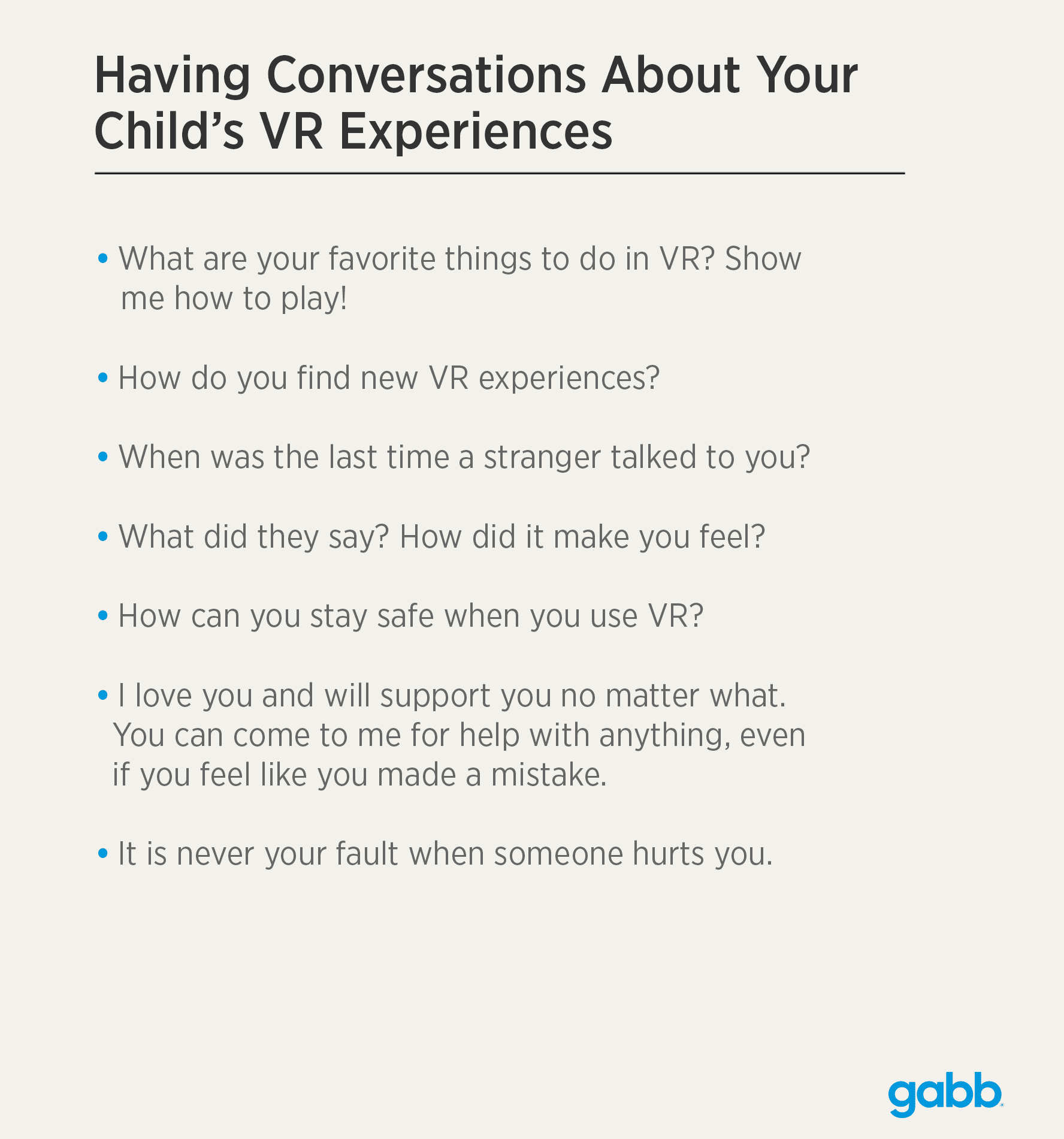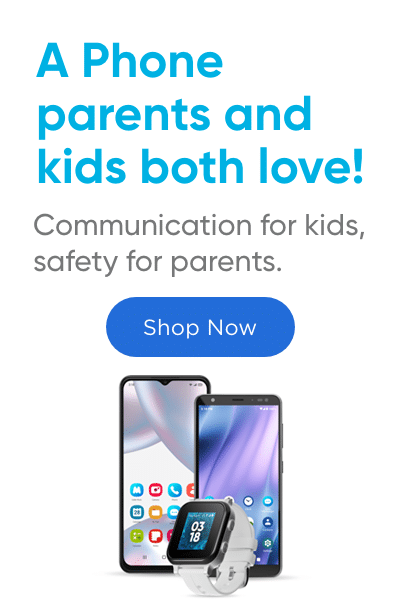How the Oculus Puts Children at Risk
Stay up to date on the digital dangers that lurk where children play
MAR 31, 2022
How the Oculus Puts Children at Risk
Stay up to date on the digital dangers that lurk where children play
Predators Target Children in Virtual Reality Chat Rooms
In March 2022, a Florida man used virtual reality (VR) technology to groom a 13-year-old girl from Utah. The two met using a VR platform on Oculus. After communicating for a month, the man convinced the girl to meet up with him in person. She was abducted from her town and taken 365 miles to Wyoming. Two days later, police found the child in the back of the semi-truck the man was driving. Evans was charged with kidnapping and harboring a runaway (Cobabe, 2022).
What is VRChat?
VRChat is a platform that allows users to create an avatar and enter a virtual world. You can enter this online world through an Oculus Quest VR headset made and sold by Facebook.
One promotion for the service describes the experience by saying, “Imagine being whoever you want and going wherever you’d like, exploring vast customized virtual worlds, and interacting with tens of thousands of new friends from across the globe” (VR Chat Spaces, 2020). Sounds cool, right? Transcending time, space, and identity—what an adventure! While the platform appears benign, it poses a serious risk to the safety and wellbeing of children.

Is VRChat Dangerous for Kids?
Yes. Anyone with an Oculus and a Facebook account can download VRChat for free. The app currently has no age restrictions or age verification. Since children will likely link to their other social media accounts from this Facebook account, most will inadvertently or intentionally share personal details (Lenhart & Madden, 2020).
Kids are not good at protecting personal information. The Pew Research Center found that most teens with online social media profiles reveal information about themselves to strangers. They lack the experience and cognitive development to intuitively see the potential danger of revealing identifying details.
VRChat—The Perfect Spot for Online Groomers
Within VRChat, users are encouraged to defy reality with their imaginations. Predators use this expectation to hide their true identity and sick intentions. This unregulated environment is the perfect place to prey upon a child. In the case of this young girl, we see a new way online predators can use technology to groom children. Both offline and online, predators meet children where they play. Experts warn that we will likely see more VR predators as the technology becomes increasingly popular (Anderson, 2022).
Online sexual solicitation is on the rise as children spend more time online. These reports nearly doubled between 2019 and 2020 as Covid-19 precautions led to more kids being plugged in (O’Donnell, 2021), increasing predators’ access to young victims.

The Problem with VR
VR is becoming increasingly popular, especially among teens. Meta (formerly known as Facebook) has invested at least ten billion dollars into creating a metaverse—a virtual reality world where users can create and share virtual spaces (Isaac, 2022; Bonifacic, 2022). Their VR game, Horizon Worlds, allows users who have never met to socialize, play, and work as avatars.
VR apps have come under fire lately for the lack of protection they give children. The ability to interact with strangers means that predators like Evans can use the platform to meet and groom children.
Earlier this year, one BBC researcher explored the dangers posed by VR by posing as a 13-year-old girl on VRChat. She was able to access a virtual strip club where she saw instances of sexual harassment, sex paraphernalia, and avatars engaging in e-sex (Bonifacic, 2022).
While VRChat allows users to report inappropriate content, the service doesn’t have boundaries to keep kids from accessing these “adult” spaces. Anyone with a Facebook account can download the app and access all of its contents (Bonifacic, 2022).

What Parents Can Do to Protect Their Kids Online
While these developments should make parents cautious, we don’t have to be numbed with fear. We can still protect and empower our kids. Simply being involved in our children’s digital lives will make a huge difference.
Susan Kennedy, prevention program manager at The National Center for Missing & Exploited Children, said, “The best thing you can do to protect your children online is to be involved in their online life. Ask about what they are doing online and take a genuine interest” (O’Donnell, 2021).
[Online predators] are able to take advantage of children when their activities are secret. This happens often when children are not comfortable or even afraid to go to the adults in their lives when something is happening online, especially when they feel that they have done things they regret or know they shouldn’t have done.
—Susan Kennedy, The National Center for Missing & Exploited Children, 2021
Moving Forward
Talking to our children about their digital activity has to be done frequently. Educator Michelle Busch-Upwall of Utah’s Internet Crimes against Children Task Force counsels, “It’s not one conversation. It’s continuing conversations and evolving conversations” (Anderson, 2022).
Kennedy emphasized keeping these conversations supportive instead of punitive. “Offenders are able to take advantage of children when their activities are secret. This happens often when children are not comfortable or even afraid to go to [the] adults in their lives when something is happening online, especially when they feel that they have done things they regret or know they shouldn’t have done” (O’Donnell, 2021).
Busch-Upwall emphasized that parents can also help their children by understanding the potential dangers of new technologies. She said, “We’ve got to make sure that we understand how [these technologies] work before we’re handing [them to] our kids” (Anderson, 2022).
As technology changes so rapidly, many parents wonder how to keep up. Sign up here to receive free articles emailed directly to you on how to empower and protect our kids in the digital age. You can safeguard your children, and we can help.
Update
Currently, Facebook appears to have added some parental controls, but none of them seem to limit or block contact through messaging apps.
These new controls will include:
- Customized settings to lock/unlock the headset
- The ability to lock specific apps
- App blocking based on the app’s rating
- A parental dashboard for the Oculus mobile app














Success!
Your comment has been submitted for review! We will notify you when it has been approved and posted!
Thank you!